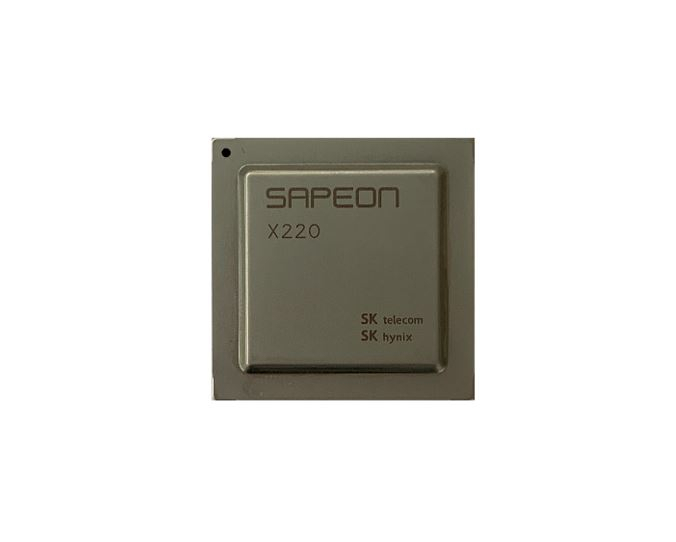 |
A promotional photo of X220 (Sapeon) |
Sapeon, an artificial intelligence-powered chip designer backed by South Korea's SK Group, unveiled Tuesday a test result that its first commercialized product X220 has outperformed US graphic processor giant Nvidia's newest product A2.
The chips for data centers in two varieties, X220-Compact and X220-Enterprise, were both superior to Nvidia's A2 in terms of AI processing speed and power consumption, according to a benchmark test result in MLPerf's inference.
The large-scale AI cloud service performance of X220-Compact was 2.3 times faster than Nvidia's A2 in data centers, while that of X220-Enterprise were 4.6 times faster, showed the MLPerf test result. Also, the performance-per-watt capabilities of X220-Compact and X220-Enterprise were 2.2 times and 2 times more efficient, respectively, than that of A2.
The Sapeon AI chips' product commercialization stage was verified as "Available" by MLPerf, a consortium of academia, research institutes and industries in the field of AI.
X220 products are designed and manufactured under a 28-nanometer process, which is less advanced compared with those of competitors, including Nvidia's A2 that underwent an 8nm process, according to Sapeon. This allows Sapeon to design chips that are more price-competitive and at the same time more efficient, according to the US-based company.
Korean mobile carrier SK Telecom holds a controlling 62.5 percent stake in the Santa Clara, California-based AI chip designer, following a carve out earlier this year.
The X220 products were commercially sampled beginning in 2020, as part of SK Telecom's project to enhance AI computing infrastructure. SK's memory chip affiliate SK hynix has provided technology support to Sapeon. Sapeon looks to release its successor X330 by the second half of 2023.
Sapeon's AI chips are currently applied in projects in Korea, such as AI speaker Nugu, intelligent video security solution T-view and AI-based media quality upscale solution Supernova.







![[Today’s K-pop] Blackpink’s Jennie, Lisa invited to Coachella as solo acts](http://res.heraldm.com/phpwas/restmb_idxmake.php?idx=644&simg=/content/image/2024/11/21/20241121050099_0.jpg)